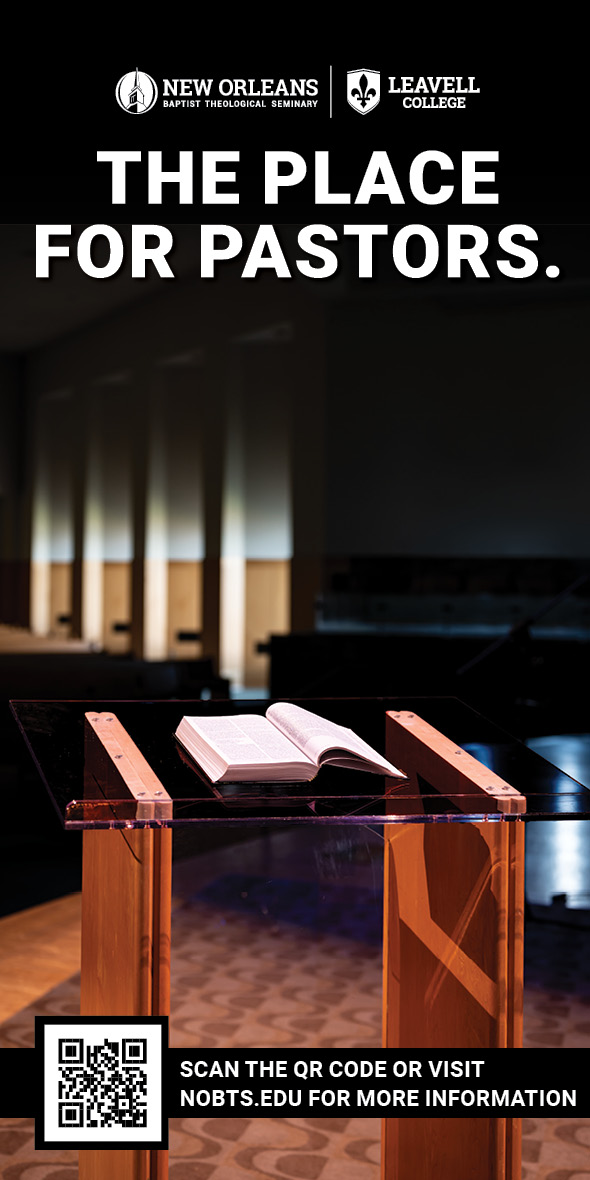During my most recent tenure as the director of a Baptist association, we sold our office building. Then we moved into small offices in one of our churches. Ultimately, we went virtual.
Why?
We did not recognize the answer at first. When we realized it we celebrated because it reflected the true meaning of being an association.
There were three phases of our journey. We started with an office building people came to for personal conferences and meetings. We ended with no place to which people could go and say they went to the association.
RELATED: For more stories on Baptist associations by George Bullard, click here.
That happens if a Baptist association is a building. It is not.
Phase one: Selling the office building
Our association had a nice office building. It had been totally renovated a dozen or so years prior to selling it. It had three offices, a reception area, a small conference room and a large gathering area that could hold up to 60 people.
At one time the state convention office building was in the next block. Then they built a new building a couple of miles away. After that people did not naturally stop by our building for fellowship.
When I began my role, the association was losing money every month. The budget receipts would not support the staff and programming. We quickly moved from a full-time administrative assistant to a part-time assistant and later to a virtual assistant.
This left me and the two-thirds time community ministry associate as the only staff people for almost 100 congregations. We also had a contract worker to help nurture our African American congregations.
I monitored the number of visitors to the building. I discovered one person per week came by the office without an appointment.
Since we had a small staff we did not need all the space. Over a series of months I talked with our leadership about leasing out the building and moving to smaller offices. I finally suggested we sell it.
Some leaders had an emotional attachment to the building. When the major building renovation took place a dozen years earlier, they did a fundraising campaign. Some people and congregations had given sacrificially.
But we needed less office space and more money to help congregations engage missionally. Operating the building cost us nearly $25,000 per year.
We sold the building, tithed the proceeds to the Metropolitan New York Baptist Association and invested the rest with the Baptist foundation in our state.
This allowed us to add several contract workers for a total ministry team of eight people. I was the only full-time person.
The ministry team — called The Huddle — possessed a diversity of spiritual gifts that allowed us to serve congregations in many ways.
Phase two: Using a small space in a church
We arranged with a church to rent two offices and a storage room. Plus, we had access to a meeting room for a couple of dozen people and an assembly room for up to 80 people.
Only the ministry assistant and I had offices at the church. Everyone else was already virtual. Then COVID-19 hit. The community ministry assistant and I went virtual. We each came by the office one or two days per week but not at the same time.
This arrangement worked out fine. We appreciated the generosity of the host congregation.
Phase three: Going virtual
As we considered our work patterns, our scattering in ministry and our gatherings as The Huddle, it occurred to us that we did not need an actual physical office.
We had begun several years before meeting people at their churches or at a coffee house or restaurant near them.
We could hold all associational gatherings in church buildings. We regularly moved meetings from church to church so our leaders could really get to know the association and also for congregations to experience associationalism.
We realized that we needed to align our ministry patterns with our associational philosophy. There was a philosophy that we always knew but failed at first to realize as the reason we did not need a building.
A Baptist association is a family of congregations on mission from the base of their Jerusalem, not an office building to which people go.
It takes all of us a while to realize the true meaning of what we say we believe.
EDITOR’S NOTE — George Bullard spent 45 years in denominational ministry. He served on the staff of three associations, was a key staff person working with associations in two state conventions and served on the association missions division staff of the former Home Mission Board of the SBC. He retired in June 2022 as director of Columbia Metro Baptist Association in South Carolina. He has led strategic planning processes in more than 100 associations and has written extensively in this area. Bullard now serves as a strategic thinking mentor for Christian leaders through his ForthTelling Innovation ministry and a correspondent for The Baptist Paper.
To request permission to republish this article, email news@thebaptistpaper.org.










